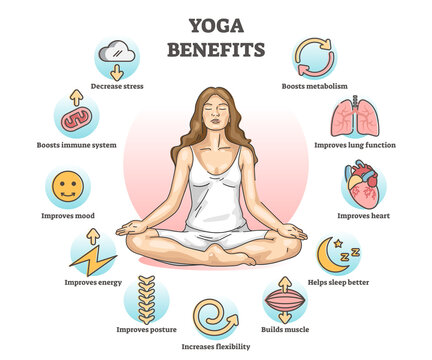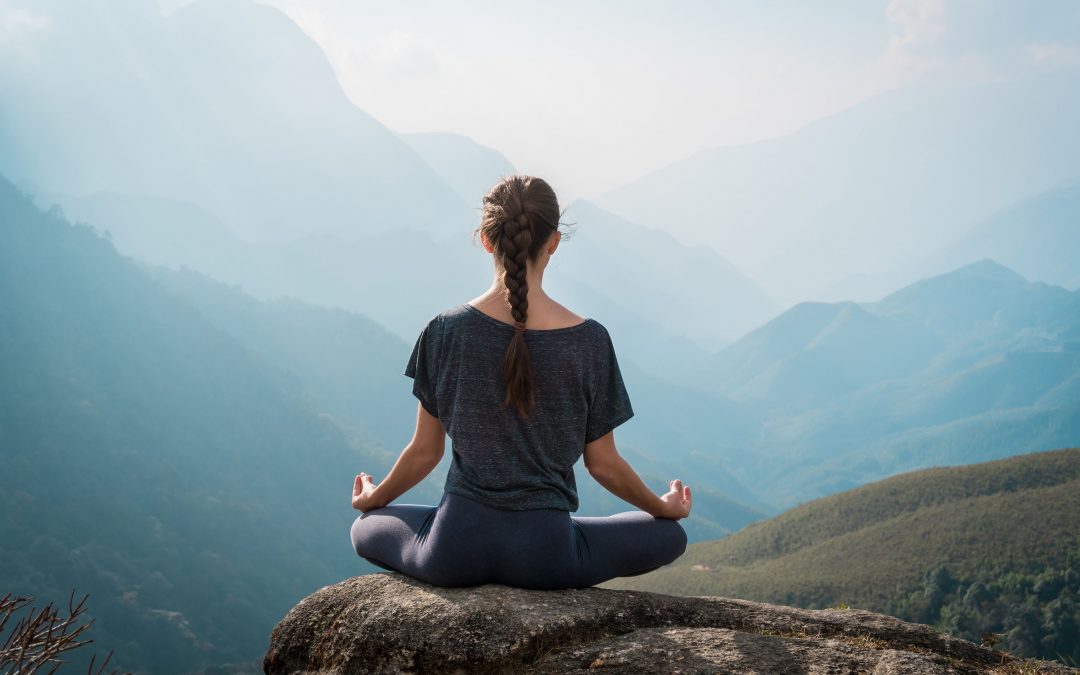Meditation is a practice that has been around for thousands of years and is a powerful tool for achieving inner peace, clarity, and focus. It involves training your mind to focus on the present moment and to let go of distracting thoughts and emotions. Meditation can have a profound impact on your mental and physical well-being, and it is becoming increasingly popular as people look for ways to reduce stress and improve their overall health.

Why it is called Meditation? Why it is so Important?
The term “meditation” comes from the Latin word meditatio, which means to think, contemplate, or reflect. Meditation is a practice of focusing the mind and achieving a state of relaxation and inner peace.
Meditation is important for several reasons. Firstly, it can reduce stress and anxiety, which are common problems in today’s fast-paced world. By practicing meditation regularly, we can learn to let go of negative thoughts and emotions and develop a greater sense of calm and well-being.
Secondly, meditation can improve our overall mental and physical health. Studies have shown that regular meditation can reduce blood pressure, improve sleep, and boost our immune system. It can also help to reduce symptoms of depression and anxiety and improve our ability to concentrate and focus.
Thirdly, meditation can help us develop greater self-awareness and a deeper understanding of ourselves. By learning to observe our thoughts and emotions without judgment, we can gain insight into our behavior and make positive changes in our lives.
Finally, meditation can be a spiritual practice for some people, allowing them to connect with their inner selves or a higher power. It can be a way to find meaning and purpose in life and cultivate a sense of gratitude and compassion towards others.
What are the 7 stages of Meditation?
There are many different approaches and techniques to meditation, and therefore, there are different ways of categorizing or describing the stages of meditation. However, here is one commonly used framework that describes the seven stages of meditation:
- Preparation: In this stage, the meditator prepares the body and mind for meditation by finding a comfortable seated posture, relaxing the body, and focusing the mind on the breath or a mantra.
- Introspection: In this stage, the meditator begins to turn inward, observing the thoughts, feelings, and sensations that arise in the mind and body without judgment or attachment.
- Concentration: In this stage, the meditator develops greater concentration and focus by directing the mind to a single object of meditation, such as the breath or a visual image.
- Contemplation: In this stage, the meditator begins to deepen their understanding of the object of meditation, reflecting on its meaning and significance.
- Meditation: In this stage, the meditator enters a deep state of concentration and relaxation, experiencing a sense of inner peace and stillness.
- Illumination: In this stage, the meditator experiences a profound sense of insight or understanding, gaining new perspectives on themselves and the world around them.
- Integration: In this stage, the meditator brings the insights and benefits gained from meditation into their daily life, applying them to their relationships, work, and personal growth.
Aspects of Meditation
Meditation and the Brain
Research has shown that meditation can have a positive effect on the brain. It can increase activity in areas of the brain associated with happiness, empathy, and compassion while decreasing activity in areas associated with stress and anxiety. Studies have also shown that regular meditation can increase the size of the prefrontal cortex, which is responsible for attention and decision-making, and the hippocampus, which is involved in learning and memory.
Meditation and Stress
In today’s fast-paced society, stress is a prevalent issue that may be harmful to both our physical and emotional health. Relaxation and stress reduction can both be achieved through meditation. We may quiet our brains and lessen the physiological impacts of stress on our bodies, such as elevated heart rate and blood pressure, by concentrating on the here and now and letting go of distracting ideas and feelings.
Meditation and Anxiety
Anxiety is a common mental health issue that can be debilitating for some people. Meditation has been shown to be an effective way to reduce anxiety symptoms. By learning to focus on the present moment and let go of anxious thoughts, we can train our minds to be more resilient to stress and anxiety. Studies have shown that regular meditation can decrease symptoms of anxiety and improve overall well-being.
Meditation and Sleep
Our physical and mental health depends on getting a good night’s sleep, but many people experience insomnia or other sleep disorders. To increase the quantity and quality of your sleep, try meditation. Meditation can help us sleep better and longer by encouraging relaxation and lowering tension and anxiety. Regular meditation has been found in studies to enhance sleep quality and lessen the signs of sleep problems.
Meditation and Self-Awareness
We can become more self-aware through meditation. We can develop a deeper understanding of ourselves and our behavior by practicing present-moment awareness and non-judgmental observation of our thoughts and feelings. Greater self-acceptance and a more upbeat attitude toward life may result from this.
Meditation and Relationships
Finally, meditation can have a positive impact on our relationships with others. By developing greater self-awareness and reducing stress and anxiety, we can become more empathetic and compassionate toward others. This can lead to more fulfilling and meaningful relationships with the people in our lives.
What is the right time to meditate?
The right time to meditate can vary depending on the individual and their lifestyle. Some people prefer to meditate early in the morning, while others find it helpful to meditate later in the day or in the evening. Here are a few things to consider when choosing the best time to meditate:
- Schedule: It is important to find a time when you can set aside a few minutes to meditate without interruptions. Consider your daily schedule and choose a time that works best for you.
- Energy levels: Some people prefer to meditate in the morning when they are feeling fresh and energized, while others find it helpful to meditate in the afternoon or evening when they are feeling more relaxed.
- Goals: Your goals for meditation can also influence the best time to practice. If you are looking to start your day with a calm and focused mindset, morning meditation may be best. If you are looking to unwind and relax after a busy day, evening meditation may be more beneficial.
- Consistency: It is important to establish a consistent meditation practice, so choose a time that you can commit to on a daily basis. Consistency is key to reaping the benefits of meditation.
Conclusion
In conclusion, the power of meditation is undeniable. It can have a profound impact on our mental and physical health, reducing stress, and anxiety, and promoting relaxation and self-awareness. It is a simple yet effective tool that can be practiced by anyone, anywhere, and at any time. If you are looking for ways to improve your overall well-being, meditation is a great place to start.

